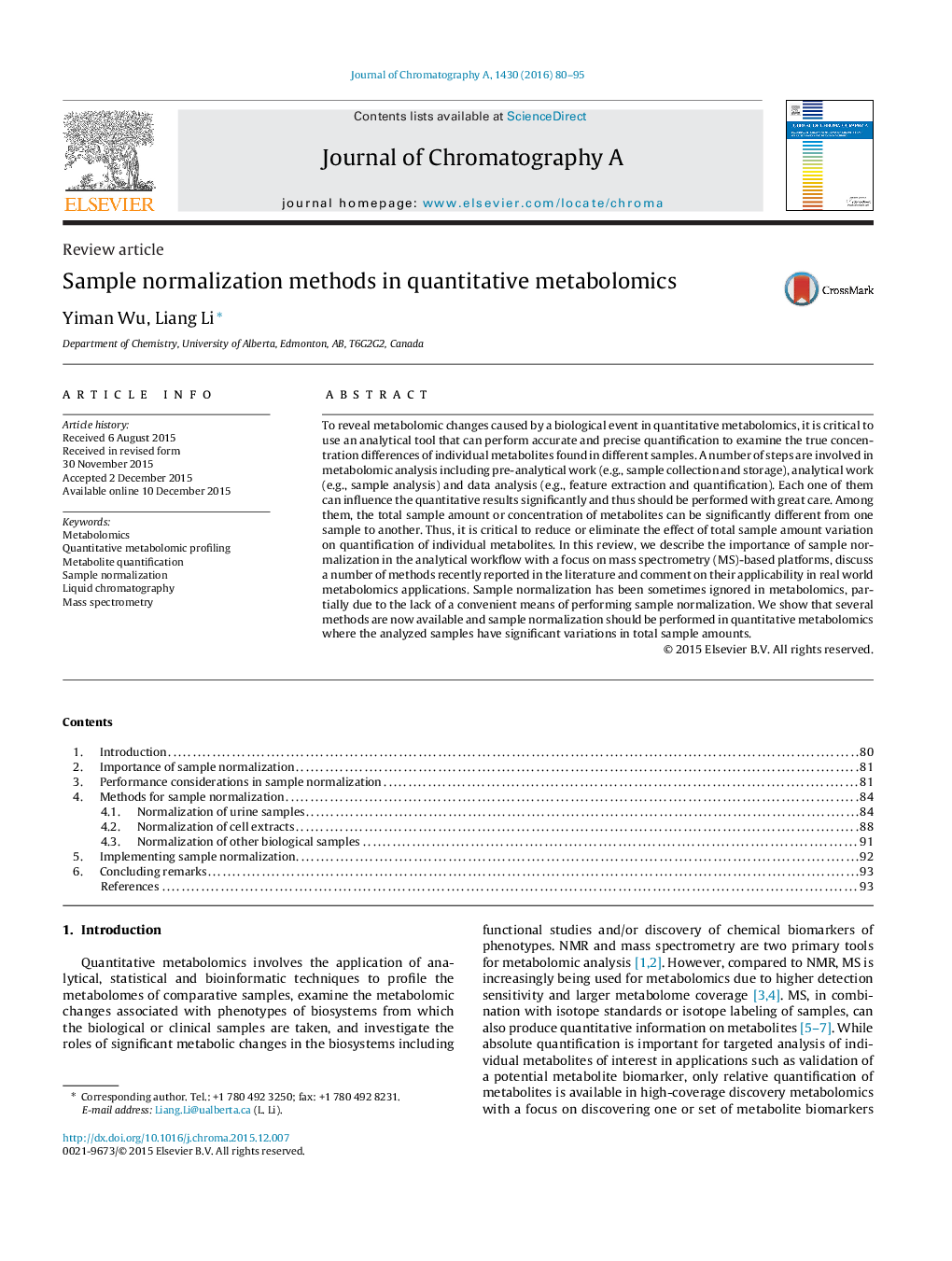| Article ID | Journal | Published Year | Pages | File Type |
|---|---|---|---|---|
| 1198959 | Journal of Chromatography A | 2016 | 16 Pages |
•Sample-to-sample amount variation could be larger than analytical variation.•Sample normalization is a critical step in quantitative metabolomics.•Sample normalization should be incorporated into a metabolomic profiling workflow.•There is no unified method but a number of methods have been reported.•The performance of sample normalization methods needs to be carefully considered to select a proper method.
To reveal metabolomic changes caused by a biological event in quantitative metabolomics, it is critical to use an analytical tool that can perform accurate and precise quantification to examine the true concentration differences of individual metabolites found in different samples. A number of steps are involved in metabolomic analysis including pre-analytical work (e.g., sample collection and storage), analytical work (e.g., sample analysis) and data analysis (e.g., feature extraction and quantification). Each one of them can influence the quantitative results significantly and thus should be performed with great care. Among them, the total sample amount or concentration of metabolites can be significantly different from one sample to another. Thus, it is critical to reduce or eliminate the effect of total sample amount variation on quantification of individual metabolites. In this review, we describe the importance of sample normalization in the analytical workflow with a focus on mass spectrometry (MS)-based platforms, discuss a number of methods recently reported in the literature and comment on their applicability in real world metabolomics applications. Sample normalization has been sometimes ignored in metabolomics, partially due to the lack of a convenient means of performing sample normalization. We show that several methods are now available and sample normalization should be performed in quantitative metabolomics where the analyzed samples have significant variations in total sample amounts.
